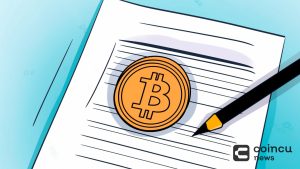Binance Purposefully Disregarded US Sanctions In Order To Support Iranian Users
Largest crypto exchange Binance knowingly skirted US sanctions by serving clients in Iran, according to a Reuters report.

On Twitter, CEO Changpeng Zhao (CZ) reacted to the revelation, claiming that the exchange had utilized Thomson Reuters World-Check data to screen consumers, essentially shifting responsibility and implying that the company’s know-your-customer (KYC) mechanism had failed to successfully prevent Iranian users.
After the US re-imposed sanctions on Iran in 2018, which prevented cryptocurrency exchanges from providing services to Iranian consumers, Reuters reported in an exclusive story on Monday that at least 18 people in the nation claimed to have traded cryptocurrency using BNB. Furthermore, senior staff members allegedly boasted on Telegram about Binance’s success in Iran while being aware of the sanction-skirting.
Seven users were interviewed, and it emerged that BNB only blocked their access in September 2021 after anti-money laundering measures were strengthened. Due to its highly lenient standards, Binance was the exchange of choice up to that point.
“There were some alternatives, but none of them were as good as Binance,” Tehran-based trader Asal Alizade told Reuters. “It didn’t need identity verification, so we all used it.”
Indeed, according to the news outlet, only an email address was needed for Iran users. “They succeeded in gaining a huge trading volume, with many pairs of currencies, within a short period of time” said crypto hedge fund manager Pooria Fotoohi, who also claimed to use Binance from 2017 to 2021.
Binance was pleased to avoid sanctions

At the urging of western governments, Binance refused to block Russian users after Russia invaded Ukraine in February. CZ argued that it would be “unethical” to implement a sweeping ban, beyond just those people under penalties, only to bend over backwards to comply when the EU deemed it necessary in April.
Binance has asserted time and time again that it constantly complies with international sanctions and that it has a “global compliance task force” to maintain ethical standards.
However, it has been forbidden to serve Iranian clients for four years. The inner circle of Binance continued to brag about its achievements in the restricted nation despite this. Senior staff were informed of the exchange’s success, according to Reuters. One of the messages the publication received began, “IRAN BOYS,” and was written by a higher official in direct response to information demonstrating how well-liked Binance was in Iran on Instagram.
However, in response to Reuters’ exclusive investigation, CZ quickly posted on Twitter to claim that it had utilized World-Check, a screening program developed by Thomson Reuters, to restrict users based in Iran.
“Thomson Reuters offers opt-in, extension content, targeting specific geographies and industries that fall within the broader remit of KYC risk intelligence,” it says in its official brochure.
“Various countries imposed restrictions against Iran that bar specific exports and investments. The Iran Economic Interest (IEI) data set allows customers to screen all of their customers, partners, counterparts and business transactions for potential Iran sanction risk” (our emphasis).
The news outlet reports that due to Iran-based users relying on Binance’s main exchange — and not Binance.US — it’s protected from US regulators when it comes to skirting US sanctions.
“But Binance does run a risk of so-called secondary sanctions,” Reuters said. “As well as causing reputational damage, secondary sanctions can also choke off a company’s access to the US financial system” (our emphasis).
Protos has reached out to Reuters and Binance to learn more about how the World-Check can be and was used to adhere to international sanctions against Iran. We’ll update this piece should we hear back.
DISCLAIMER: The Information on this website is provided as general market commentary and does not constitute investment advice. We encourage you to do your own research before investing.
Join CoinCu Telegram to keep track of news: https://t.me/coincunews
Follow CoinCu Youtube Channel | Follow CoinCu Facebook page
Annie
CoinCu News



















